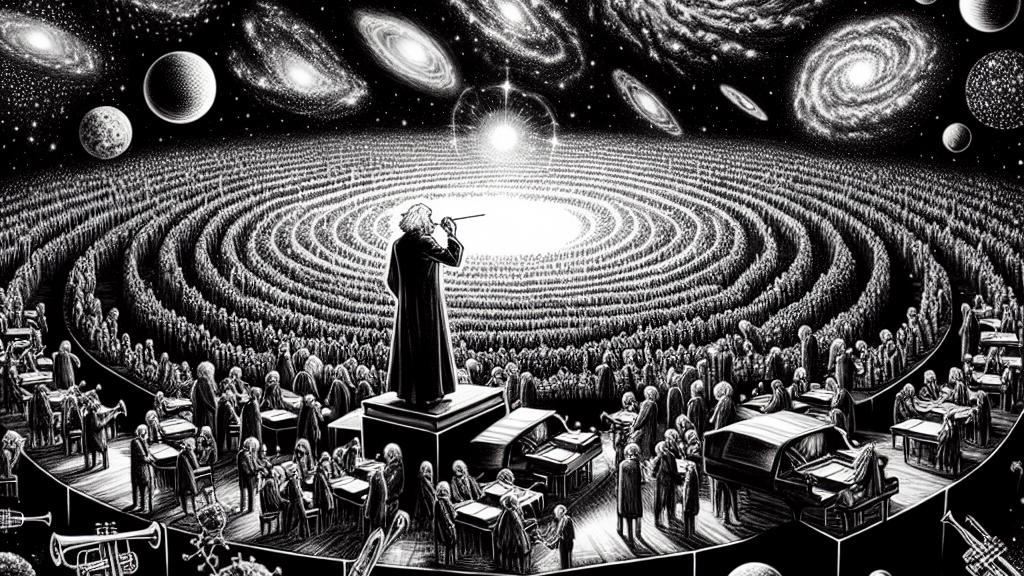The Birth of Dark Matter in the Dark Big Bang Theory
Overview
- Groundbreaking research unveils the 'Dark Big Bang' as a potential source of dark matter.
- Dark matter, an elusive entity, influences visible matter and shapes our universe.
- Future gravitational wave detections could validate the Dark Big Bang theory and revolutionize cosmology.

Unraveling the Mysteries of Dark Matter
Imagine a realm where the invisible governs the cosmos, a reality profoundly illustrated by the ongoing research at Colgate University in the United States. Here, scientists are passionately exploring dark matter, a mysterious substance that claims a staggering 27% of the universe's mass yet remains undetectable through conventional means. It seems like the universe is a grand performance, and dark matter acts as the unseen conductor, guiding the stellar movements of galaxies. Traditionally, the Big Bang theory has been hailed as the definitive story of our universe's inception. However, as researchers dig deeper, crucial questions arise about the origins and nature of dark matter. Enter the captivating hypothesis of a 'Dark Big Bang', proposed by innovators Katherine Freese and Martin Winkler—this theory suggests that a second colossal event could hold the answers we've sought for centuries.
Delving Into the Dark Big Bang Hypothesis
What if, alongside our cherished Big Bang, there existed a phenomenal event—an explosion of monumental proportions that birthed dark matter? This 'Dark Big Bang' may have occurred within a hidden 'dark sector' of the universe, a conceptual space rich with dark energy and matter. Imagining this scenario leads to fascinating possibilities: picture instances of 'dark matter cannibalism', where particles collide and merge, forming new entities in a dance of energy and transformation. The allure intensifies with the prospect of detecting gravitational waves, ripples in spacetime that could be echoes of this Dark Big Bang, offering crucial evidence of an event that shaped the very structure of our universe. Such discoveries would not merely whisper truths about dark matter; they could herald an era where our understanding of cosmology undergoes an exhilarating transformation.
Anticipating Cosmic Revelations Ahead
As we gaze into the future, the excitement surrounding gravitational wave detection reaches a fever pitch. Projects like the International Pulsar Timing Array (IPTA) are set to probe the cosmos for subtle signs that could link back to the Dark Big Bang. Can you imagine the implications? Confirming this theory might change everything we know about dark matter and reshape our perception of foundational cosmic principles. Each revelation could unveil hidden connections between forces in nature, aiding in the unification of physics and possibly hinting at additional dimensions yet to be explored. This is not just science; it’s a thrilling journey that beckons us to reconsider our place in the vast and often mysterious universe. With each turn of the cosmic wheel, we are one step closer to unlocking the universe’s deepest secrets.

Loading...